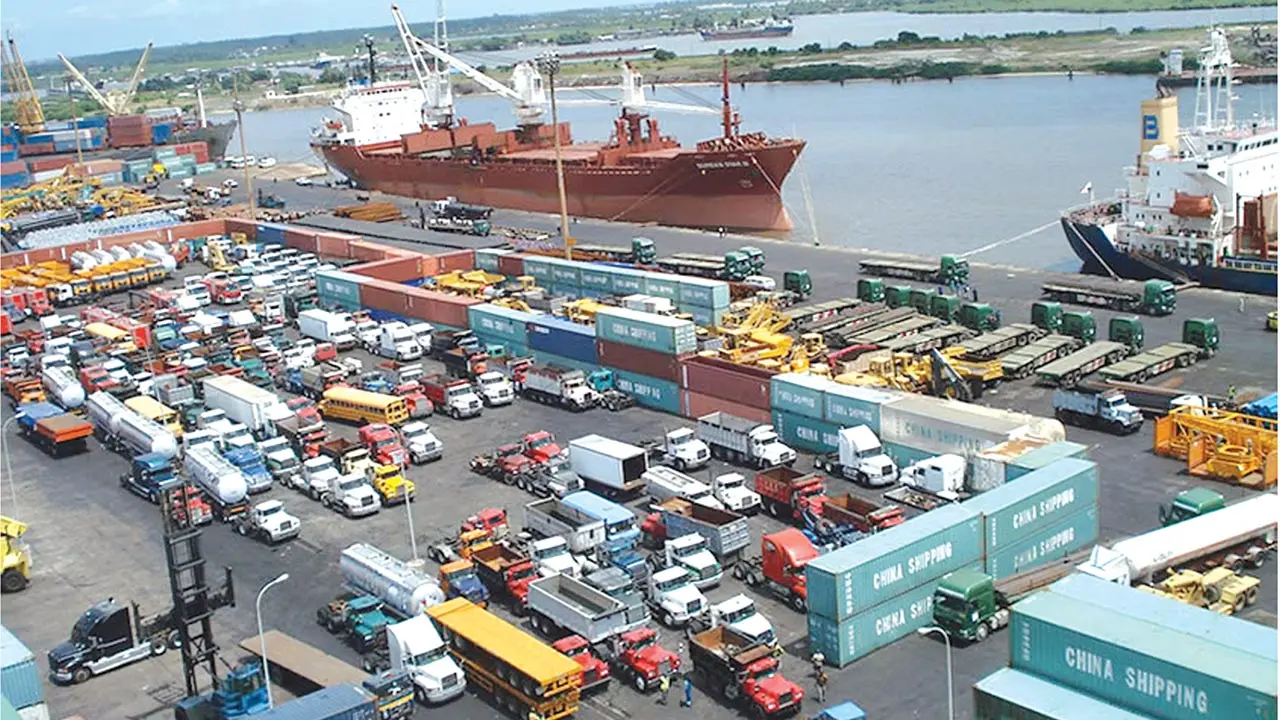Ports in the South-South geopolitical zone witnessed mixed results in the amount of the export and import activities executed in the first quarter of 2024. The analysis done by the Nigerian Observer on the 2024 first quarter foreign data showed that while the South-South ports gained more transactions in the import segment, they lost some transactions in the export segment to other ports in the country.
The performance of the ports in the South-South in the first quarter of 2024 was juxtaposed with the first quarters of 2022 and 2023, just to establish if any, the gradual shift of foreign trade activities from the overburdened Apapa Ports in Lagos State, to other ports in the federation.
The South-South ports that featured in Nigeria’s export and import business include the two ports in Rivers State, Onne and Area 1; Warri in Delta State, and Calabar Port in Cross River State.
Our analysis showed that the volume of export business carried out in the South-South ports during the first quarter of 2024 declined when compared to the first quarters of 2022 and 2023.
It should be noted that Nigeria’s total foreign trade at the end of the first quarter of this year increased by 145.6 percent to N31.81 trillion, compared to N12.95 trillion as of March 2023. Total imports at the end of the first quarter of 2024 amounted to N12.64 trillion. This compares to N6.47 trillion imports recorded as of March 2023, meaning that the import business in the first quarter of 2024 increased by 95.53 percent over the corresponding period of 2023.
Exports amounted to N19.17 trillion at the end of the first quarter of 2024. In the same period in 2023, total exports stood at N6.49 trillion, indicating that the level of export performance in Q1 2024 was 195.5 percent higher than the corresponding period of 2023.
The external trade data showed that Nigeria recorded a positive trade balance of N6.52 trillion as of March 2024 compared to a positive trade balance of N20.94 billion as of March 2023.
The reference periods for our analysis are Q1 2022, Q1 2023 and Q1 2024. Port Harcourt Ports at Onne executed 4.70 percent of the nation’s export business in Q1 2022; 2.32 percent in Q1 2023, and 1.41 percent in Q1 2024.
The second Port Harcourt Port in Area 1 executed 0.06 percent, 0.12 percent and 0.10 percent in those periods respectively.
Calabar Port executed 0.07 percent of the total export activities in Q1 2023, while its share in other two periods was very negligible.
Warri Port executed just 0.03 percent of the export activities in Q1 2024, but its share in other two periods was negligible.
Combining the volume of activities in the four South-South ports in each quarter, results revealed that they handled lesser transactions in the current year when compared to the previous years.
That means based on the NBS data, when combined, the four ports in the South-South geopolitical zone executed 4.77 percent of the total export business in Q1 2022; 2.51 percent of the total export business in Q1 2023, and 1.54 percent of the total export activities in Q1 2024, which shows a declining trend.
But progress was made in the import segment. The share of the South-South ports in the nation’s import transactions rose to 12.36 percent in Q1 2024 from 11.54 percent in Q1 2023.
In Q1 2024, Onne Port accounted for 7.84 percent of the nation’s import business. Area 1 Port accounted for 1.62 percent just as Warri Port accounted for 2.90 percent of Nigeria’s import business, thus bringing the combined share of South-South ports to 12.36 percent in Q1 2024.
In the corresponding quarter of Q1 2023, Onne Port executed 6.43 percent of the nation’s import business while the Port Harcourt Area 1 Port also executed 2.55 percent of the nation’s import business. Warri and Calabar ports executed 1.38 percent and 1.18 percent of the nation’s import business respectively.
This implies that in Q1 2023, the South-South ports executed 11.54 percent of the nation’s import business. However, in Q1 2022, their share was very negligible relative to the total import transactions the nation recorded.
The Apapa Port in Lagos State was the most patronized in comparison to other ports in the country in the first quarters of 2022, 2023 and 2024.
In Q1 2024, Apapa Port accounted for 94.29 percent of Nigeria’s exports, 93.56 percent in Q1 2023 and 92.28 percent as of Q1 2022.
On the import segment, Apapa Port accounted for 58.45 percent in Q1 2024; 64.04 percent in Q1 2023, and 60.77 percent in Q1 2022.


